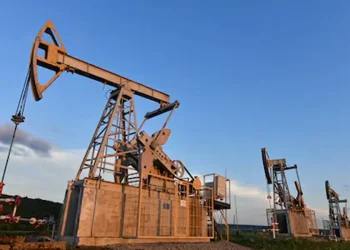Humanitarian groups say US-built pier having ‘little impact’ and warn ability to deliver aid to Gaza nearing collapse.
The US Department of Defense has said a recently installed pier to bring aid deliveries into the Gaza Strip will be temporarily removed for repairs, after a section of the span was damaged in bad weather.
Pentagon spokeswoman Sabrina Singh said on Tuesday afternoon that deliveries of humanitarian aid to the coastal Palestinian enclave by sea would be suspended as repairs are carried out to the so-called “Trident” pier.
A section of the US-installed pier came away earlier in the day as a result of high seas and a North African weather system, Singh said.
“The rebuilding and repairing of the pier will take at least over a week, and, following completion, will need to be re-anchored to the coast of Gaza,” she told reporters during a news briefing.
“Thus, upon completion of the pier repair and reassembly, the intention is to re-anchor the temporary pier to the coast of Gaza and resume humanitarian aid to the people who need it most.”
The announcement came as 20 humanitarian groups warned that even with the pier, aid deliveries to and within Gaza remain woefully inadequate as Israel’s bombardment and siege on the territory nears its eighth month.
On Tuesday, the aid organisations – including Amnesty International, the Norwegian Refugee Council, and Doctors Without Borders (Medecins Sans Frontieres, or MSF) – said humanitarian access via land crossings into Gaza must be prioritised.
“As Israeli attacks intensify on Rafah, the unpredictable trickle of aid into Gaza has created a mirage of improved access while the humanitarian response is in reality on the verge of collapse,” they said in a statement.
“The ability of aid groups and medical teams to respond has now all but crumbled, with temporary fixes such as a ‘floating dock’ and new crossing points having little impact.”
On May 22, the UN Office for the Coordination of Humanitarian Affairs (OCHA) also said that more than 800,000 Palestinians had been newly displaced in southern Gaza since early May as Israel launched a ground operation in the city of Rafah.
The Rafah crossing, one of the main entry points for humanitarian aid, has been shuttered since Israeli forces seized it on May 7, the humanitarian groups said on Tuesday.
They also added that some 2,000 aid trucks have been stuck in El Arish, Egypt, with food rotting and medicines expiring, as they await Israeli approval to enter Gaza.
The Karem Abu Salem crossing, which Israel calls the Kerem Shalom, has remained open, but commercial trucks have been prioritised.
“Aid agencies and human rights organizations continue to call for an immediate, sustained ceasefire to save and protect, and for consistent and predictable routes to bring aid into and across Gaza,” the aid groups said.
The US-built pier off the Gaza coast had been criticised since its inception, with rights advocates saying US President Joe Biden’s administration should instead do more to pressure Israel to allow steady deliveries to enter by land.
But US Central Command (CENTCOM) said 1,005 metric tonnes of aid had been delivered to Gaza via the pier as of Friday, with 903 metric tonnes distributed from the transfer point to a UN warehouse.
While the $320m pier opened just two weeks ago, it has faced several setbacks.
Last week, deliveries were halted for two days after crowds rushed aid trucks coming off the pier. One Palestinian man was shot dead.
The US military later worked with the UN and Israeli officials to chart a safer alternate route for the trucks, the Pentagon said on Friday.
On Saturday, CENTCOM said four US Army vessels supporting the pier broke free from their moorings and ran aground in heavy seas. Two beached in Gaza while the other two washed up on the Israeli coast, 50km (30 miles) south of Tel Aviv.
Singh said one had been recovered and the other three will be brought back in within 48 hours.
At maximum capacity, the pier would bring in enough food for around 500,000 Palestinians in Gaza, according to US officials, who have said the delivery mechanism is only meant to supplement land crossings.









 American Dollar Exchange Rate
American Dollar Exchange Rate